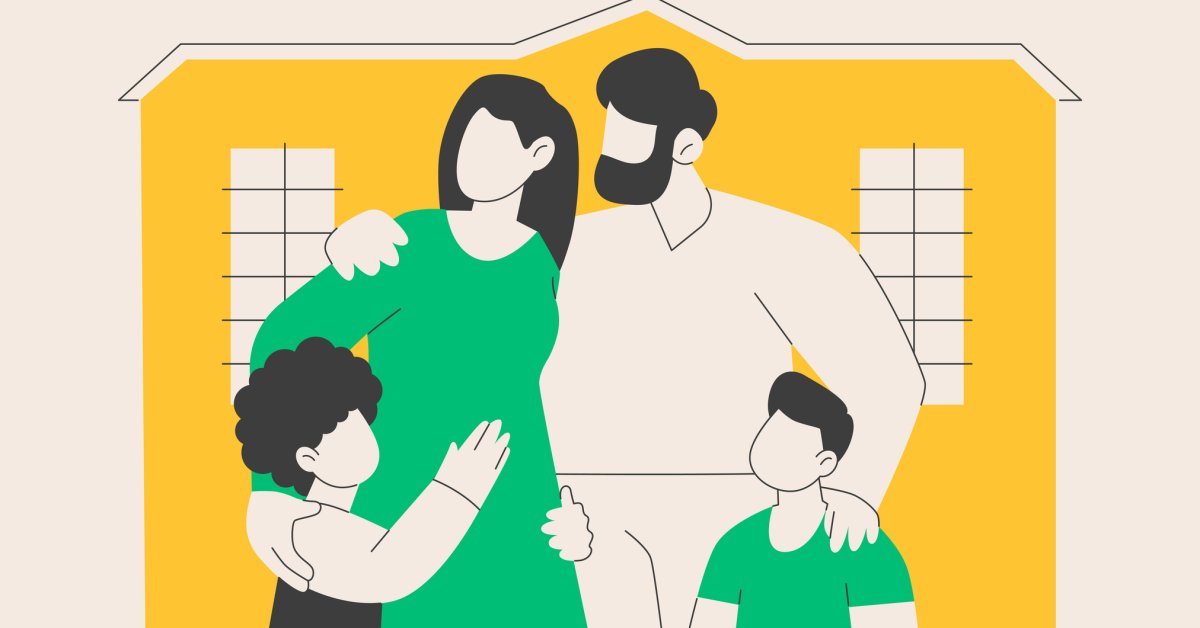In today’s political debates, “pro-family” rhetoric is everywhere, driven, in part, by concerns around a decline in the number of births every year in the United States. In 2023, there were 1.6 births per woman, down from 2.1 in 1990. That drop puts our country below the “replacement rate,” which allows a population to replace itself from generation to generation.
This is more than an academic problem. As fewer babies are born, the ratio of working-age people to retirees declines, putting significant strain on our economy. That’s because workers make the economy run and contribute to it through spending and taxes, while dependents—children and the elderly—rely on the systems those tax dollars support.
The good news is that Americans are already overwhelmingly pro-children. A 2023 survey by Gallup found that over 90% of American adults have children or would like them, and a growing number of Americans would ideally have three or more kids—the highest level since the 1970s.
This means our best chance to reverse the decline in births is through a pro-family policy that gives Americans the freedom and support to build the lives—and families—they want. Not the families politicians prescribe, or the structures dictated by economic necessity, but the families that individuals themselves choose.
This requires ensuring that Americans are:
- Free to decide if and when to have children
- Free to decide whether and whom to marry
- Able to thrive on the income of a full-time job
These aren’t hypothetical principles—they cut to the heart of what freedom means in practice. A real pro-family agenda means ensuring that Americans can make these decisions for ourselves—and that once we do, we’re supported in carrying them out.
Choice, not control, in parenthood
A truly pro-family policy begins with the right to decide whether and when to become a parent. That includes access to the knowledge, tools, and protections needed to make that choice: comprehensive sex education, affordable contraception, safety from coercion and violence, access to infertility treatment, prenatal care, and reproductive healthcare.
Everyone should understand how their bodies work and be equipped to either pursue parenthood or avoid it. The government’s job shouldn’t be to coerce or discourage parenthood, but to empower individuals to fulfill their own vision of family life.
This is a basic principle of liberty. Americans should not live in fear that their ability to have—or not have—a child is being quietly shaped by a legislature, a budget cut, or an ideological agenda.
Marriage, on your terms
The freedom to marry—or not—is another essential element of a pro-family society. That means being free to marry whom you choose, regardless of gender, race, or background—and being free to remain single, co-parent, or divorce without stigma or financial penalty.
Today, more Americans are delaying or forgoing marriage, sometimes by choice, sometimes because of economic uncertainty. A pro-family government doesn’t pressure people to marry, or penalize them for not marrying. It removes barriers, respects autonomy, and ensures that whatever form a family takes, it is treated with dignity and fairness.
Working Americans should be able to support their families
No matter how much Americans value family, they can’t build or sustain one if it’s unaffordable. Today, even with two working parents, many households struggle to cover the basics—childcare, housing, healthcare, food, education.
A real pro-family agenda would ensure that one full-time income is enough to support a family with dignity. That means higher wages, affordable childcare, paid family leave, and strong public services—especially for single parents, who too often carry the burden alone.
This is not about handouts or government overreach. It’s about the public sector doing its part to make family life sustainable for working people. It’s about building a country where no one has to choose between raising kids and making ends meet.
If we want to reverse declining birth rates, we don’t need to coerce people into parenthood. We need to make it economically sustainable.
When “pro-family” language turns coercive
It’s tempting to think governments can—or should—nudge people toward certain family choices. Some argue that countries with low birth rates should incentivize people to have more kids. Some of the same countries now worried about low fertility were pushing families to have fewer children just a few decades ago.
But history warns us of the dangers of governments inserting themselves into decisions that should be made by families. Coercive policies like China’s one-child rule or forced sterilizations in the United States have had devastating consequences. Even seemingly innocuous incentives—like cash prizes or medals for large families—focus narrowly on rewarding childbirth without ensuring sufficient support to help those same children thrive.
There’s a fundamental difference between helping people who want to have children and trying to engineer demographics from the top down. The former respects autonomy. The latter violates it.
History also offers stark warnings when it comes to restricting marriage choices. From bans on interracial or same-sex marriage to policies that coerced people into unions for economic reasons, government intrusion into family structure has often led to injustice and harm. Respecting personal choice in love and partnership must remain a pillar of any family policy.
Even well-intentioned incentives can go wrong if they override individual autonomy or fail to address the real barriers families face. Policies that push people toward a particular kind of family—whether that’s large, small, nuclear, or otherwise—miss the point. The goal should be freedom, not any particular outcome.
A pro-family policy rooted in freedom
We need to stop treating “pro-family” as a culture war slogan and start defining it by what it actually requires: freedom, support, and respect for people’s choices.
That means ensuring people have the healthcare, education, and resources to decide if and when to have children. It also means protecting the right to form the partnerships and marriages of our choosing. And it requires creating an economy where working full-time means you can support a family.
These are not radical ideas. They’re deeply American ones. Life, liberty, and the pursuit of happiness includes the right to build the life—and the family—that’s right for you.
If policymakers want to be truly pro-family, they need to stop telling people what their families should look like—and start making it easier for all Americans to build the families they want.








